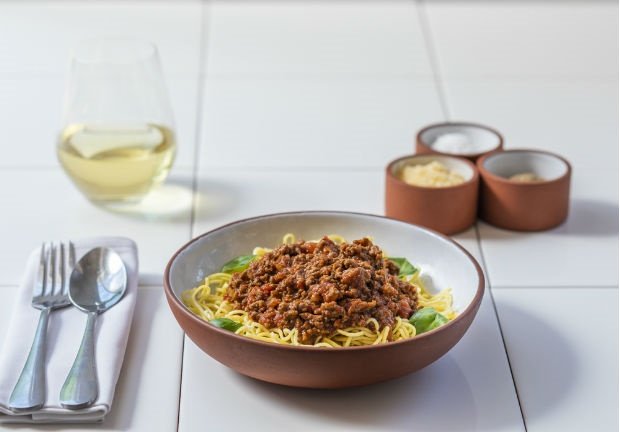It’s World Pasta Day on 25 October and if you love pasta as much as we do, you should definitely celebrate the day by making your own at home. Worried that you might mess up? Don’t panic. We’ve asked chef Jenny Ward of Chefs in Cape Town (where you can book a table online!) to help you on your pasta-making mission. She highlights a few things that you definitely need to avoid when making it from scratch. Take a look!
1. Wet dough
A rich pasta dough is usually made up of a high content of egg yolks. Eggs vary in weight and liquid. It’s easier to weigh the flour and eggs to ensure a perfect pasta dough. When adding the eggs to the flour, it can feel like it needs more liquid; so rather knead it quickly. Don’t be tempted to add extra liquid – a good pasta dough should be firm. Jenny’s go-to recipe for pasta is 500g “00” flour (double zero is a type of flour), 10 egg yolks, 2 whole eggs and a pinch of salt.
2. Tough dough
After kneading the pasta dough, it should be smooth. You can’t roll it straight away, as the dough needs to rest for at least one hour to allow the gluten to relax. It’s a good idea to make a large batch of dough. Unrolled pasta dough can be kept in the freezer and taken out when you are ready to roll it.
3. Change in the colour of fresh pasta
Fresh pasta may change colour after rolling due to the eggs in the dough. After rolling the dough, if you are not going to cook it straight away, it’s best to store in the freezer or fridge, as this extends the shelf life and any change in colour.
4. Soft overcooked pasta
Fresh pasta cooks quicker than dried pasta (it will cook in boiling water in 2 to 3 minutes). To avoid overcooking your pasta, cook it right before serving or eating. Immediately after cooking, toss with a drizzle of olive oil.

